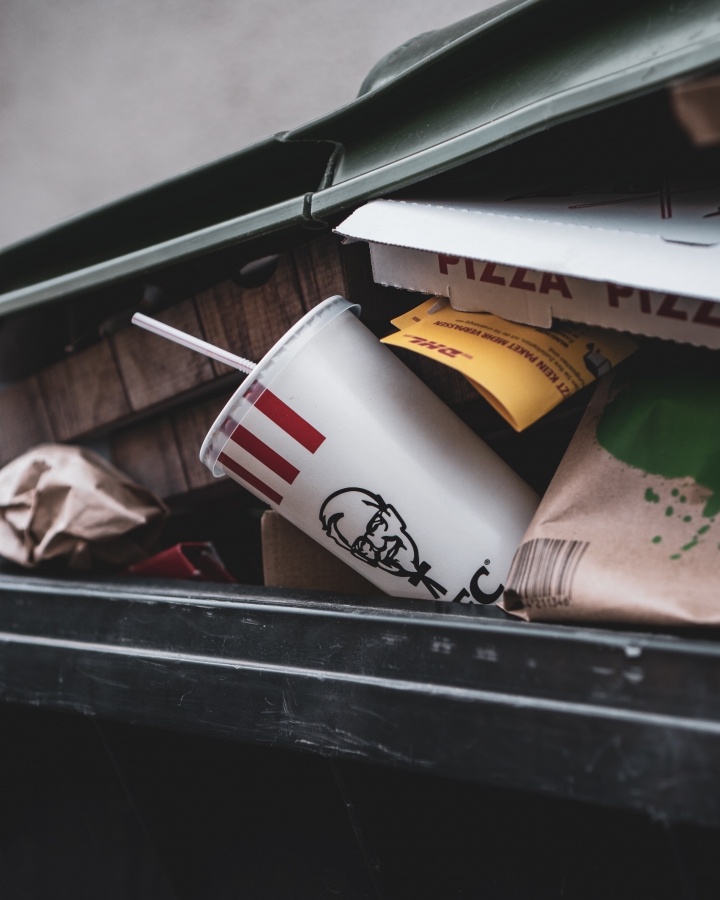FOOD WASTE MARKETING TACTICS
Retailers are often blamed for food waste, but is it really solely their fault?

Research shows that one-third of food destined for human consumption is wasted globally. In addition, this waste contributes to about 30% of greenhouse gas emissions and is playing a significant role in climate change.
Some argue that food waste that comes from high-income or developed countries is mostly caused not only by consumer behavior and consumption patterns but also poor marketing practices.
Take the "buy one, get one free" sales promotions, for instance. Although this might mean value shopping for some, it might also mean potential waste in the near future. But is that really the case?

The KFC mess
The China Consumers Association has recently criticized the famous chicken fast-food chain KFC for using a limited number of blind box sales to lure customers to over-purchase its food and cause food waste.
In this controversial promotion, KFC China collaborated with top domestic blind box toymaker Pop Mart to offer 260,000 dolls with its family-sized chicken bucket starting January 4. The KFC-themed dolls are created to celebrate the fast-food giant's 35th year in China.
The doll set features seven models of Dimoo, a popular character created by Pop Mart, with six regular ones and one hidden model. This means customers need to buy at least six chicken buckets.
With the probability of obtaining the hidden model being one in 72, some people have paid 10,494 yuan (Rp 23 million) to buy 106 buckets. Obviously, many have discarded the food they cannot finish.
Change is only happening if we change
MDPI recently published a research titled "Promoting Food for the Trash Bin? A Review of the Literature on Retail Price Promotions and Household-Level Food Waste" by George Tsalis, Birger Boutrup Jensen, S. Wiley Wakeman and Jessica Aschemann-Witzel to probe the root of the problem.
The research revealed that although food waste estimates vary, assessments indicate that approximately 25% (or 614 kcal/cap/day) of the produced crop supply is lost within the food supply chain alone.
Food waste is also regarded as a social inequality issue, helping to perpetuate inequalities in the global food supply and a financial drain on economies where an estimated $936 billion (Rp 13.41 quadrillion) is lost due to unconsumed food.
The issue of food waste has received increased global attention in the past few years, from not only governments and international non-governmental organizations but also local food market actors themselves as they recognized the values in addressing this problem.
According to the research, the price of food plays a particularly important role in the issue of food waste as "the overall low level of food prices in developed countries lead to an under-valuation of food by consumers and a disregard of the natural resources that have been used to produce it."
However, the study ultimately found that promotions and pricing are not necessarily the main culprit, saying that such assumptions "have disregarded the consumer's role and responsibility for the issue at hand".
For instance, the KFC doll craze or recent BTS x MCDonalds' hype, was it really the fault of the brand? Or is it the customers? It's just another chicken and egg question as both should be seen as equally responsible. Nevertheless, continuous customers education is necessary at this rate.
The research also revealed several approaches for retailers that might help the consumers to shop more responsibly, such as:
- Providing elaborate information to consumers about the best storage conditions to avoid wastage of food stock, and,
- Applying different types of price promotions depending on whether the food has a short or long shelf life, for instance: simple traditional discount or "buy one get one later" instead of the immediate "buy one get one free".
#THE S MEDIA #Media Milenial #Food waste #zero waste #KFC



























